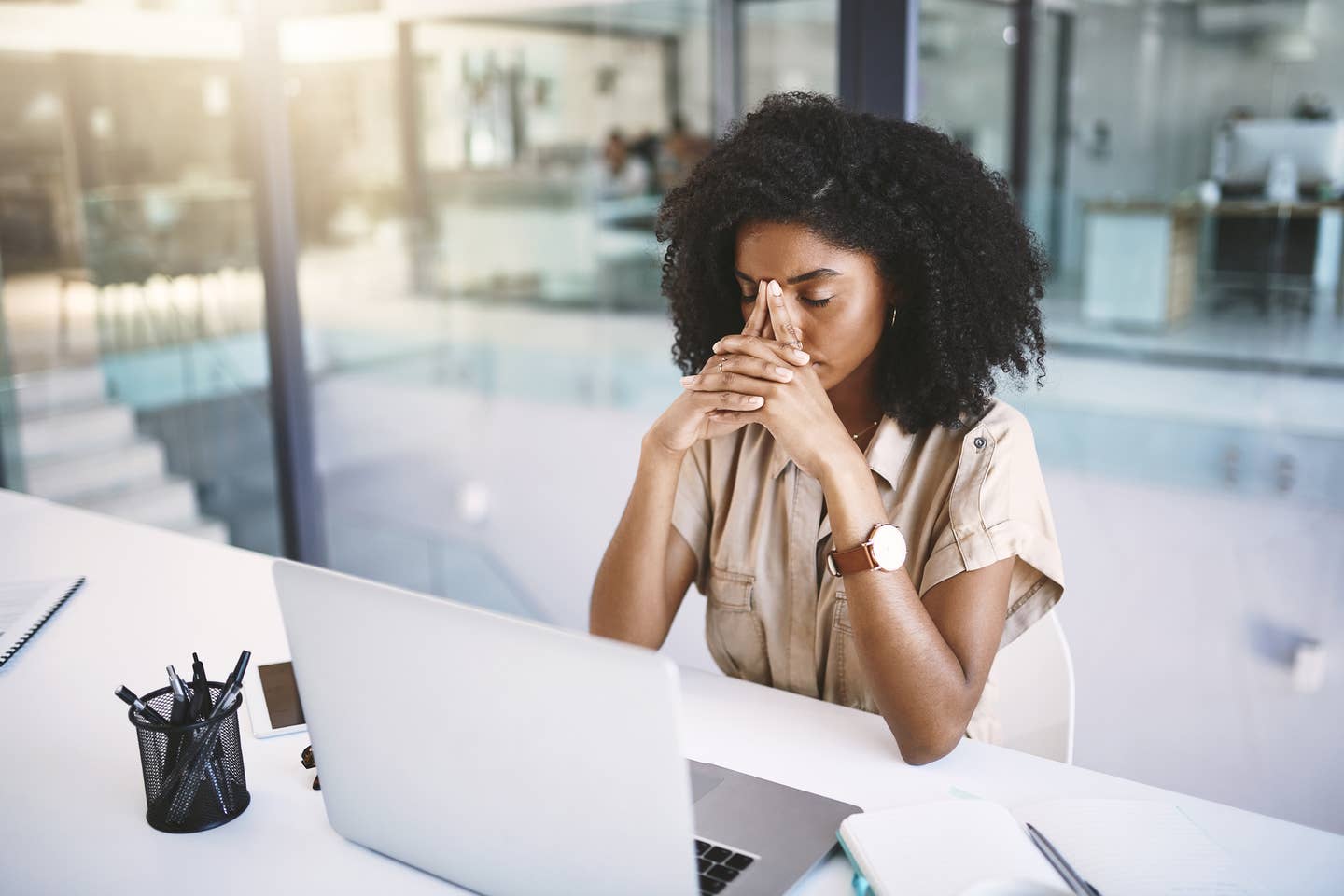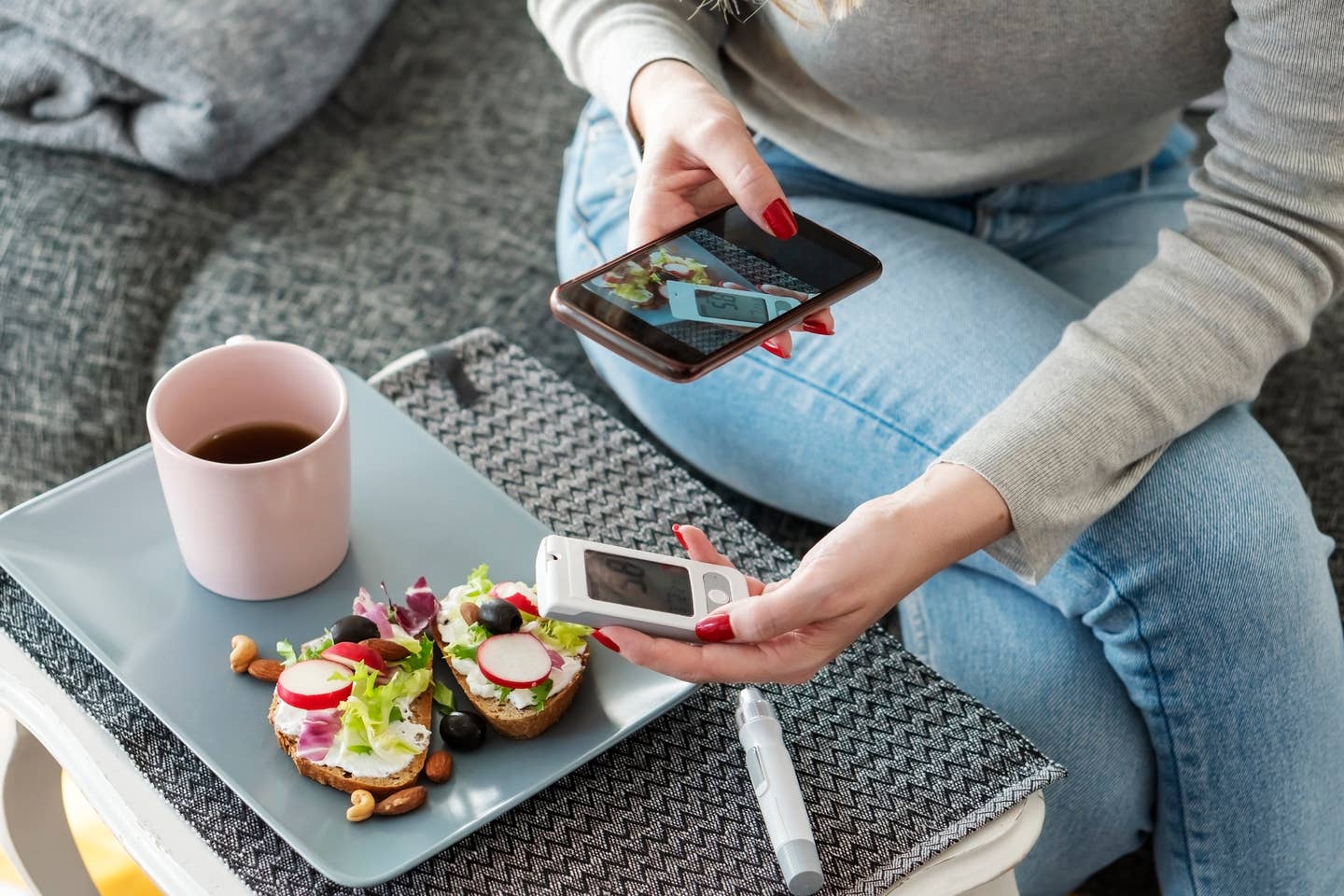
Burnout Is Real. Here’s How to Prevent It and Treat It from a Psychiatrist
Burnout is real, as companies across America are finding out. The dating app Bumble recently gave its 700 employees a week off with pay to counter the problem of widespread burnout. Meanwhile no less a venerable wall street institution than Goldman Sachs just raised the base pay for junior bankers who had reported to their bosses in February that they were working insane hours, sometimes 100 hours a week, to keep up with unrealistic deadlines. (The current base is now $125,000 for analysts and $150,000 for associates.)
And it's not just the frenzied industries of tech and finance. Aquiline, which invests in financial services companies, gave its 60 employees a week off and canceled all formal meetings to counter pandemic-induced stress and anxiety. It plans to do so again this month. "Everyone switching off at the same time means people will be able to relax fully, knowing that developments at the office will not interrupt their vacation," said Chairman and Chief Executive Jeff Greenberg who founded the company in 2005. If employee burnout is so damaging to the bottom line, imagine what it's doing to our health?
Employee burnout is on the rise: 52 percent of all workers are feeling burned out, up 9 percent from a pre-COVID survey, according to a recent report from Indeed. And employees of all ages and types are experiencing the impact of stress, fatigue, and mental health challenges, the report found. "When you look at some of the employee burnout statistics today, it’s easy to see why this is a major challenge for organizations," adds Courtney Morrison for everyonesocial in an article called 16 Employee Burnout Statistics You Can't Ignore.
What is burnout and what should you do if you are feeling overwhelmed
Burnout is a state of emotional, physical or mental exhaustion, which could be caused by prolonged stress or relentless tasks. It can manifest itself in feelings of anxiety or feeling emotionally drained, unable to meet the demands of daily life, according to researchers who wanted to figure out the relationship between burnout and anxiety and depression.
You know that burnout has set in when you lose productivity and have little energy or enthusiasm for what once interested and engaged you, according to researchers who have studied the brain state. While burnout manifests in different ways it can look like anxiety or depression but recent studies show it is its own condition, though it can lead to the other two.
Burnout is characterized "by emotional exhaustion, feelings of cynicism, and reduced personal accomplishment," according to the scientists who studied the connection between burnout and depression to see if they are separate but related and found that they are. "Our results showed a significant association between burnout and depression," the study authors found. They also discovered that burnout and anxiety are related to burnout, but that there are distinctions between them.
How can you help treat burnout or prevent it in the first place?
Burnout reduces productivity and saps your energy, leaving you feeling increasingly helpless, hopeless, cynical, and resentful, and eventually, you may feel like you have nothing more to give, according to these mental health experts. If that describes how you are feeling about your life, you may need to reach out to someone who is your advocate for help, according to Dr. Catherine Birndorf, a New York City-based psychiatrist, “The first way to solve burnout or try to overcome it is to recognize you are experiencing it,” she adds.
“Burnout is not a medical term, but it’s a descriptive term that is very visual,” and we all know it when we feel it, or hear it since it’s a societal construct. It’s a collective experience and we are all having it right now. When someone says I am burned out it’s like the embers in a fire and fire is all burned out.”
The most important thing to do is understand that you are feeling burnout, says Dr. Catherine Birndorf, who is the founder of the Motherhood Center where women can find help for issues relating to fertility, pregnancy, and parenting. When Simone Biles dropped out of the team competition at the Tokyo Olympics and needed to regroup for mental health reasons, Dr. Birndorf said she hoped this would be helpful to others who are perceived as strong and invulnerable, to admit that they need to hit pause and get the support they deserve.
"She gets the gold medal for being proactive, "Dr. Birndorf said. "The pressure, or whatever she was feeling, got to her, and she got to a point where she had to hit pause." When you feel like you're at a point where you can't productively continue, then it takes maturity and confidence to speak up, Dr. Birndorf adds. "The whole world was watching, but Biles had the inner strength to do what she did." When you stand up and do that, It's not selfish–it's self-preservation."
"The problem with mental health is you can't always see it to diagnose it," Dr. Birndorf says. But it's as real as if you broke an arm or have a disease, "Without your mental health you've got nothing. If people keep coming forth and sharing their stories, especially those who are revered like athletes and police officers then the rest of us can too.
How to ask for help if you are feeling burnt out, anxious or depressed
What works for Goldman Sachs bankers, or Olympic gold medalists, or tech start-ups is not the same, but they all have one thing in common which is that what worked before the pandemic no longer works now. Bumble made the week off permanent and is giving its employees two weeks a year when no one has to come to work. They also instigated other policies such as six-month maternity leave, and time off to care for an ailing parent or family member.
In each industry, as with each individual, what works is unique to their situation. "How you ask for help is so individual," says Dr. Birndorf. If you're feeling unusually anxious or depressed, or just not feeling like yourself, then you may want to tell your confidant or closest ally: "I am not in a good headspace," Dr. Birndorf says.
You need to find the person who will listen to you and really hear you. There are also free or discounted resources for people who need to find someone to talk to. And if you are the friend to whom someone turns then you need to be equipped to help or offer an ear.
"The first thing is if you see a friend or loved one who you recognize is struggling, ask them, 'Are you okay?' says Dr. Birndorf. Or you can look into their eyes and meaningfully, deliberately ask: How are you? And mean it. And really listen to the answer. You can say: Don't BS me. If they say something you recognize as along the lines of "I'm not in a good headspace," ask them how you can help and offer to get them help.
The same is true if you are the one who is not feeling okay. Be honest with yourself. You don't want to try to tough it out, Dr. Birndorf says since that can lead to more problems such as full-blown anxiety or detachment from loved ones, which make it tougher to cope later.
Meanwhile, she says, parenting can create burnout. “Motherhood is 24-7. Mothers are never off. It’s harder than ever and since so much shifted to the home with the pandemic it’s created an even more acute situation.” The Motherhood Center works virtually now to help treat women with these issues, especially among those who are new moms experiencing anxiety and depression.
"Now your worlds are merged and there is no separation and no space for self-care and there is no downtime,” says Dr. Birndorf. “That’s the Mother Load.”
"Everyone is talking about burnout. It's like you've hit the wall and you're done," says Dr. Birndorf. "But the problem is you can't just quit. Not everyone can quit what is bringing you down. We all have to remember to contextualize our individual feelings of burnout within the reality of what feels like a never-ending. pandemic."
You can't walk away from the things that are stressing you. it can be your kids or your marriage or your job. You have to learn to work within your personal parameters, and your own life and personal circumstances. Everyone has to work it out for themselves. So the question is what can you do to relieve some of the experience of burnout?"
How to take care of your physical and mental wellbeing, from Dr. Birndorf
"Selfcare is whatever it is for you, or whatever gives you a break or relief that is not self-destructive," explains Dr. Birndorf. "There isn't one answer for everyone. That said, there are a few things that are known to help for mental health."
- What worked before the pandemic doesn't necessarily work now. That means if you loved to read you may need to watch a show or series on Netflix to further give yourself escape from your stressors, Dr. Birndorf says.
- Get into nature and get outside. Spending time in nature is a proven comfort. Some people take what's called "forest baths" or hike more, says Dr. Birndorf. "I feel like my blood pressure goes down when I get outside in nature," she adds.
- Walk to get away from your desk or your stressors. You may prefer to walk alone or with a friend, or walk and talk, but the more people walk the more they can cope with stress. It gets them away from their screens and gets your breathing flowing.
- Eat plant-based to be healthier and feel like you're taking care of yourself. Whether you're plant-based or just trying to eat healthier, adding more vegetables, fruit, whole grains, nuts, and seeds to your plate will help shift your microbiome to be healthier than junk food or meat and dairy which can be inflammatory. Your dietary choices and alcohol consumption level often are tied to your stress levels, but the least healthy choice is to self-medicate with junk food or excessive alcohol consumption. Instead, double down on your intention to be healthy and to take care of your physical self as well as your mental or emotional self.
- Talk to someone. Find someone who you can talk to who can help you express how you're feeling and find solutions that are productive and helpful. If you have a friend who sees someone, ask him or her to ask that professional for a reference to another potential therapist. (No one is suggesting you go to your friend's therapist.) Insurance covers some of these visits, but if you are seeking free or less expensive options there are a number of places you may be able to find the right fit. Each of these resources works slightly differently so find the one for you.
These resources will help you find a therapist or someone to talk to
Hear Me is an app that offers to anonymously connect you with an empathetic listener in under a minute, 24 hours a day for free. "We all need someone to talk to," the website says. "Take charge of your mental health."
Talk Space is a place that connects you with a professional to talk to. You start by taking a brief online quiz and then finding the right fit for you. Michael Phelps is a spokesperson.
More From The Beet






